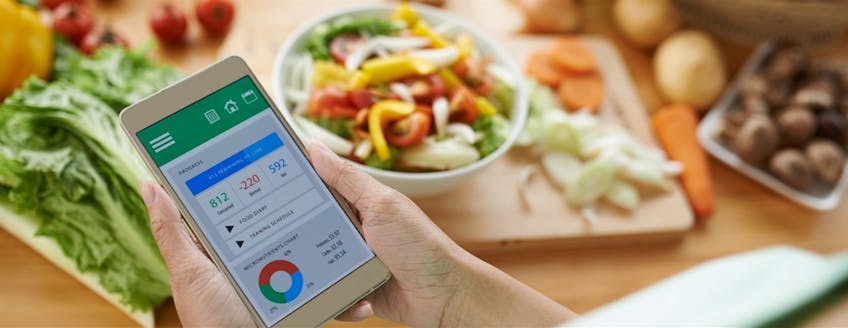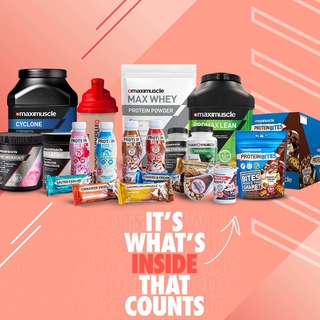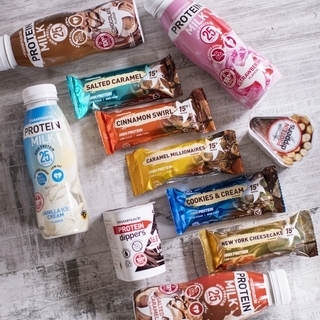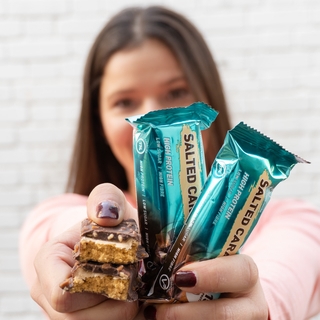Energy is power
It was Sir Francis Bacon that said, ‘knowledge is power’. The idea that shared knowledge equates to power being multiplied. In our modern world, the ability to share knowledge through social media means that everyone can now have a voice and offer their opinion, irrespective of whether they are right or wrong. For me, this really brings home that ‘A little knowledge is a dangerous thing’ (the misquoted phrase from Alexander Pope (1709)). I’m not saying that I am the oracle of all things nutrition but let me offer my opinion on why we should not seldom focus on calories, when it comes to what we eat. I’m Gareth Nicholas, Head Nutritionist at Maximuscle. Let me share some insight into why we need to look beyond just calories when making our food choices.
Energy is energy
It’s true that a calorie is a calorie, but how that calorie is created, utilised, or stored is an important factor. I recently saw an Instagram post whereby chocolate mini eggs where being compared with almonds. From an energy or calorie perspective mini eggs came out lower in calories:
|
Per 100g |
Mini Eggs |
Almonds |
|
Energy |
495 kcal |
597 kcal |
|
Carbohydrate |
69.5 g |
19 g |
|
Of which sugar |
68.5 g |
5 g |
|
Fat |
21.5 g |
53 g |
|
Of which saturated |
13 g |
4 g |
|
Fibre |
1.3 g |
12.5 g |
|
Protein |
4.6 g |
22 g |
The author of the post was highlighting that if you wanted a treat based on the calorific value, why not choose mini eggs. For me, and I’m sure you, this paints the wrong picture and is exactly the reason why there is so much confusion in the world of nutrition. Of course, if you want a chocolate treat and you are happy with the decision, then why not have mini eggs, but to even attempt to justify them as being a better snack choice purely on the energy value, is just laughable. For more on counting calories, check out this article.
Nutritional Top Trumps
Looking at the nutritional information (based on 100g) there is no contest which is a better choice. Just a few facts to prove this and clear up any confusion:
- Sugar is the number 1 ingredient used to make mini eggs, a whopping 17 teaspoons of sugar in every 100g. An overwhelming 55% of the total calories come from sugar versus 3% for almonds.
- Saturated fat is also up there on the hit list for mini eggs with a massive 60% total fats being saturated, versus only 7.5% for almonds. Of course, almonds have a much high fat content than mini eggs per 100g, but the majority is considered unsaturated good fats.
- There is almost 5 times the amount of protein in almonds versus mini eggs, 22g and 4.6g respectively.
- Almonds also contain 10 times the fibre content of mini eggs.
- Almonds not only win on the top trumps of nutritional numbers but are also packed with a plethora of micronutrients, such as: calcium, riboflavin, copper and magnesium to name a few.
It’s called a treat for a reason
Don’t be fooled or think that as the nutrition police, I’m saying that Mini Eggs are off the menu. If you want a treat and your ‘must have’ is mini eggs, then have mini eggs. Just be comfortable with your choices and understand the consequences. It’s completely your decision. Of course, if you are following a particular plan, diet or goal, eating confectionary may not be the best thing. In enters, sports nutrition. Maximuscle Protein Bars, as an example offer a treat like snack but without the high levels of fat and sugar.
A healthy diet taking in Isolation
Stop thinking about foods or nutrients in isolation. I know that helps understand why you might have a particular nutrient, or perhaps why you might want to reduce or avoid something, but we don’t eat foods or ingredients in isolation, and importantly digestion and ingredient utilisation is not done in isolation. A healthy diet is not just about calories, the macro and micronutrients should also be considered. Look at your nutrition based on a week, then a few days, then a day, and finally broken down into singular meals. It’s unlikely to be perfect, but the closer you can get, the better.
Perhaps try a calorie counter app to get you started. It’s better to have your diet 80% perfect, than being 100% perfect on 4 days and then letting loose on Friday night through to the Sunday roast. Don’t try and justify bad food choices, just accept them as a bad choice and try and work harder where you can. The occasional treat won’t ruin a diet or lead you on an unhealthy path, that comes from allowing the occasional treats in becoming a regular feature.
















